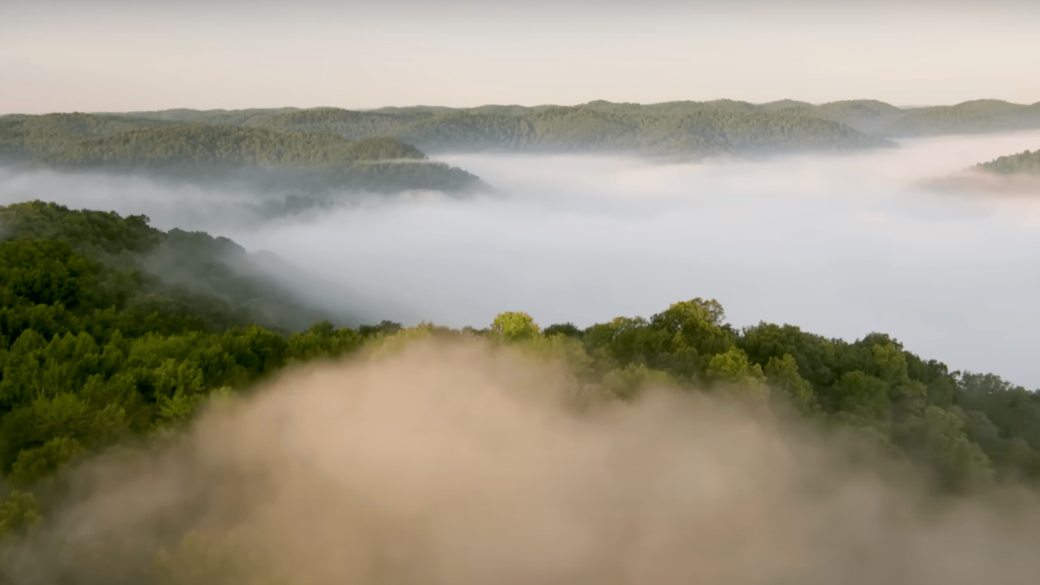Reasons Not to Move to West Virginia
West Virginia is unique due to its culture and Appalachian landscape. However, those considering a move must consider factors that may conflict with their lifestyle. This article covers 12 reasons not to move to West Virginia.
The state has advantages, but prospective residents should weigh them before moving. The goal is to give a picture of the difficulties in West Virginia so that one can make an informed decision about moving there.
12. Limited Job Opportunities in Diverse Sectors
West Virginia has relied on coal mining and heavy industry, stifling other industries. These industries define the state, making alternative career paths difficult.
Technology, healthcare, and arts professionals may find it harder to find work in the state than in more diverse states. For instance, a digital marketer looking for work may find West Virginia less welcoming than other states with a more diverse economy.
11. Educational System Challenges
West Virginia’s underfunded schools worry families with children. According to the National Center for Education Statistics, public school students here perform poorly.
This may deter parents who value education for their children. The state’s inability to recruit and retain qualified teachers also makes this a major concern for families considering a move.
For those of you with families and young children, this will be one of the main reasons not to move to West Virginia.
10. Health Care Access and Quality
Quality health care is a major issue in rural West Virginia. Health care facilities, such as hospitals, are less common in the state’s rural areas compared to other states. Poor access to medical care can be problematic for those with special needs or regular care.
For example, chronically ill people may have trouble getting specialized care without traveling far. Moreover, the state’s health rankings often fall below national averages, highlighting health care challenges.
9. Environmental Concerns
Its long coal mining history and ecological impact make West Virginia a major environmental issue. Along with landscape degradation, air and water pollution pose serious health risks.
Water contamination in West Virginia has caused health advisories and changed residents’ lives. Residents’ health and the environment are at risk. Those seeking a healthier, greener lifestyle may not like these conditions.
8. Limited Cultural and Recreational Opportunities
West Virginia’s natural beauty may not match larger cities’ cultural and recreational offerings. Larger cities in the state have more museums, art galleries, and music venues than smaller ones.
People used to big city culture may miss it in West Virginia’s towns and cities. This restriction may affect lifestyle choices, especially for those who value cultural diversity.
7. Infrastructure and Transportation Limitations
Public transportation in West Virginia may also discourage potential residents. Non-drivers struggle with the state’s poor public transportation due to its rugged terrain and rural nature.
Because of poor public transportation, some residents drive to work and other important locations. This can be a major issue for rural public transportation users. West Virginia isn’t the only place with this problem though, as residents in Asheville NC have the same issue.
6. Higher Crime Rates in Certain Areas
Some West Virginia areas have higher crime rates, which may concern potential residents. Often located in economically disadvantaged regions, these areas deal with issues of violence and property crimes.
For example, compared to the rest of the country, crime rates in Huntington and Charleston have been significantly higher. So, prospective movers should study the neighborhoods’ safety dynamics. While high crime is not a state-wide issue in West Virginia, it can still influence decision-making.
5. Weather Extremes and Natural Disasters
There is a higher likelihood of severe weather and natural catastrophes in West Virginia. Some people dislike the state’s heavy snowfall and hot, muggy summers. While in West Virginia’s mountains, floods and landslides are common.
For instance, the river valley towns have been prone to severe flooding, damaging properties and infrastructure. Thus, environmental risks must be considered, especially for those unfamiliar with such extremes.
4. Social and Political Climate
People may not like West Virginia’s social and political climate. The conservative stance of the state government may put liberals off. This goes beyond politics; it affects the community’s values and social climate.
People whose culture is more diverse, for instance, may have a harder time fitting in with communities that do not share their worldview. Someone considering a move must understand and be comfortable with the local social and political climate.
For those of you that lean more to the left, this will be one of your reasons not to move to West Virginia.
3. Economic Stability and Growth Potential
Moving to West Virginia requires consideration of economic stability and growth potential. Coal mining, which fluctuates in price and declines, has historically driven the state’s economy. Due to economic dependency, growth and diversification have been difficult.
Those seeking long-term economic stability and career growth may find this daunting. Young professionals and entrepreneurs seeking dynamic and rapidly growing economies may find West Virginia’s economy inhibiting innovation and opportunity.
2. Limited Access to Advanced Healthcare and Specialties
Providing advanced healthcare and specialized medical services is a challenge in West Virginia. Rural areas with few doctors and facilities are hit hardest. For chronic patients, traveling far for specialized medical care is difficult.
For instance, someone who needs regular cardiologist or neurologist visits may find it inconvenient and time-consuming to get proper care. This inaccessibility can influence relocation decisions for individuals and families who value healthcare.
1. Economic Dependency on Declining Industries
West Virginia’s dependence on declining industries, especially coal mining, is its biggest drawback. This dependence has caused economic instability and limited job prospects in other sectors. With the world shifting to renewable energy, the coal industry is declining, hurting the state’s economy and job market.
This uncertainty affects residents and newcomers, especially those seeking stable employment. For example, this economic uncertainty may pose a threat to the financial stability and professional advancement of families or individuals intending to establish a future in West Virginia.
Conclusion
In conclusion, West Virginia has wonderful natural beauty and a rich cultural heritage, but there are important factors to consider before moving there.
From limited job opportunities in diverse sectors to economic instability due to declining industries, potential residents must weigh these challenges against their personal and professional goals. Environmental issues, healthcare access, and the state’s social and political climate are also factors.
One must ensure these factors match their values, lifestyle, and long-term goals before moving here. Like any state, West Virginia has pros and cons, so what worries one person may not bother another.


